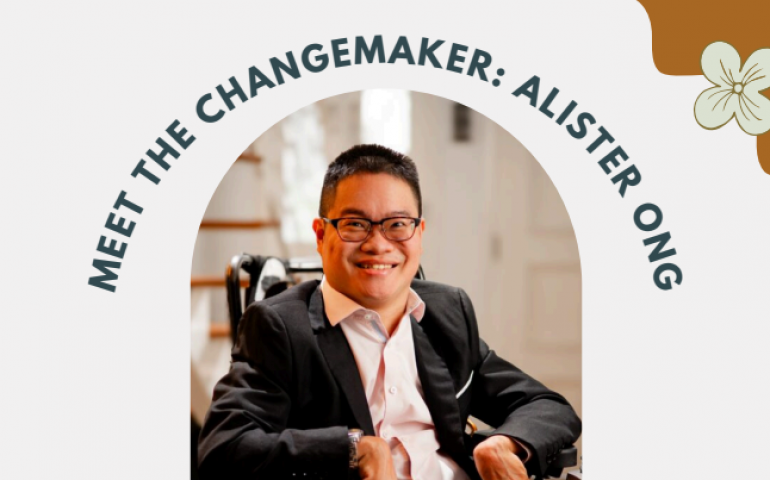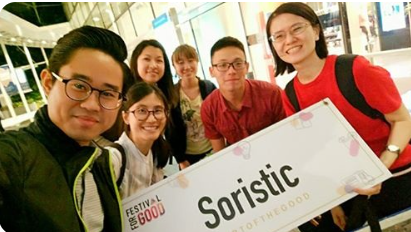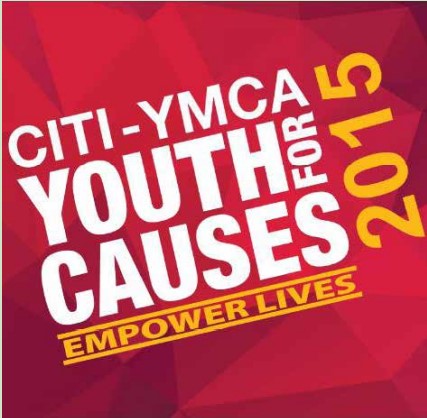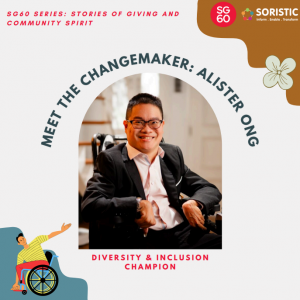
A B O U T A L I S T E R O N G
Born with cerebral palsy, Alister Ong grew up
navigating a world not always built for him — but
instead of focusing on what he couldn’t do, he chose
to act on what he could.
Today, he’s one of Singapore’s most inspiring
disability inclusion advocates, using his voice and
story to open minds, build bridges and spark
compassion.
Alister’s vision is simple yet powerful: a truly inclusive society, where
diversity goes beyond coexistence and becomes belonging. He believes
persons with disabilities should be fully integrated into education,
social life and employment — not as an afterthought, but as an equal
part of the community. For him, inclusion isn’t only about accessibility or
policies; it’s about everyday mindsets and small acts of consideration
that add up to real change.
Whether he’s speaking on a stage, advising
organisations, or mentoring youth, Alister reminds us
that inclusion begins with how we see one another —
and that every choice, every conversation, can be a
step toward a kinder, more inclusive world.
Can you share your journey as a changemaker
– and what has kept you motivated to
continue?
I was born with cerebral palsy, and growing up I felt the
blunt edge of both physical limits and social separation.
Over time I stopped measuring myself by what I couldn’t
do and started looking for the small, stubborn things I
could. That shift – deciding to explore those little things I
could give – is where my changemaker journey really
began.
What keeps me going is the proof that sharing honestly matters. A turning
point was an overseas volunteering trip where a leader put me on stage to
tell my story; people told me they were encouraged, and that tiny
affirmation built my confidence.
Knowing that my words and presence can help someone else feel less
alone – that fuel, and the steady support of people who believed in me – is
what continues to motivate me to keep showing up.
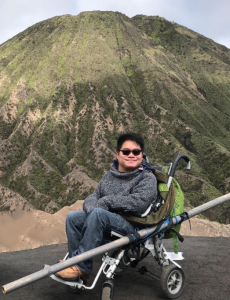
“I still remember freezing before my first talk — but when someone told me my story mattered, I felt a spark. That spark is what keeps me going.” – Alister Ong
What kind of change are you trying to create,
and who does it impact the most?
I want an inclusive society where diversity isn’t just
visible but where people actually belong — where
friendships, school life and workplaces include people
with disabilities as equal members, not footnotes.
I focus a lot on youth and employment because those are the
spaces where friendships form, skills are built and dignity is
forged; I want to see people with disabilities included across
social, educational and professional life so they can participate
fully.
That includes shifting from the medical/charity model to a social model: fix
the environment and systems so people aren’t disabled by design. We can
build ramps and assistive tech, but the bigger work is changing mindsets
and everyday choices so accessibility isn’t undermined by people’s
behaviour.
The impact is broad – persons with disabilities, their families, employers
and peers all benefit when society learns to include.
What challenges have you faced in your
changemaking journey, and how did you
overcome them?
A key frustration has been that many events “preach to the
choir” reaching those who already agree, while the wider
world remains untouched.
That gap can feel discouraging, but I’ve learned inclusion
means journeying alongside those still learning, not writing
them off.
I overcame isolation by partnering with existing organisations like NCSS,
focusing on co-creation rather than reinventing the wheel. By influencing
systems from within and designing programs with beneficiaries, change
becomes more durable.
Patience, partnership, and the humility to invite others into the process
have been my most important tools.
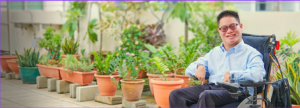
“Fix the environment, not the person.” – Alister Ong
Who or what has made your changemaking
journey possible?
My family’s care and concern shaped my earliest
years — they wanted what was safest for me, even if it
meant keeping me home sometimes — and that
grounding mattered.
Equally pivotal were moments when others nudged
me forward: on a volunteering trip a leader
encouraged me to share my story, and my friends
literally pushed me on stage. Those small acts of faith
showed me I had something worth telling.
Beyond individuals, institutional partners and platforms have amplified
what I can do. Invitations to speak at schools, corporates, national
conferences and working with bodies that already run programmes let
me influence hiring culture and policy conversations in ways I couldn’t
alone.
Those relationships and opportunities turned a personal story into
something that can shift systems.

How has this journey changes you personally,
and what are your hopes for the future?
This journey has changed me from someone who froze
at public speaking into someone who can stand on
national and international stages.
My confidence and sense of self-worth grew because I
discovered that my experience is something I can give –
telling stories, speaking at schools and conferences, and
seeing people respond has helped me find purpose. That
personal growth is both humbling and empowering.
Looking ahead, my hope is simple but stubborn: more empathy, more
compassion and practical shifts that let people participate fully.
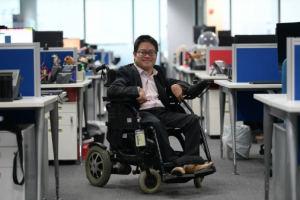
“What’s more important is all of us believing in one another” – Alister Ong
What would help you grow or scale the impact
of your changemaking work?
To scale this work, I need access- to networks, decisionmakers and those shaping hiring and procurement – to drive systemic change.
Funding helps, but strategic partners and experts in
strategy and operations are equally vital for sustainable
impact.
Collaboration with tech and design partners can improve assistive
technologies, while co-creating with existing organisations avoids
duplication.
Simply put: connect me with the right people, tools, and expertise, and
together we can move from individual wins to lasting structural
change.
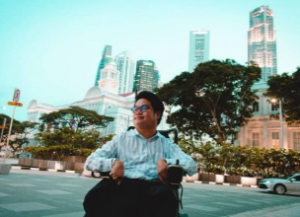
SG60 Series: Stories of Giving and Community Spirit
The SG60 Series is a storytelling and research initiative that reimagines
philanthropy by spotlighting how everyday individuals, including those
from disadvantaged backgrounds, are powerful changemakers in their
own right.
We examine the challenges they face, the enablers that support them,
and the impact they create. These insights offer ecosystem enablers a
valuable opportunity to explore how they can better empower
changemakers and catalyse grassroots action. Above all, the stories
affirm that anyone can be a changemaker in their own way.
We are deeply grateful to all the changemakers who generously shared
their journeys with us.

